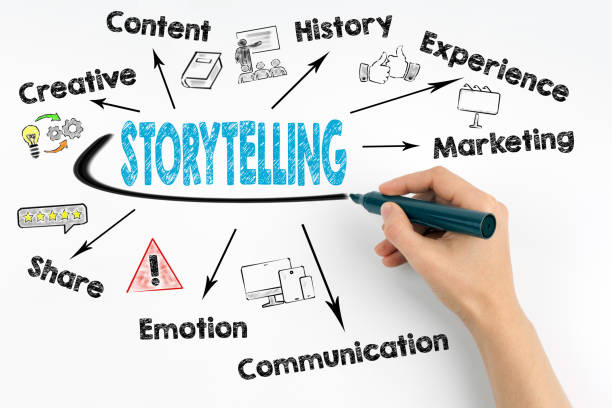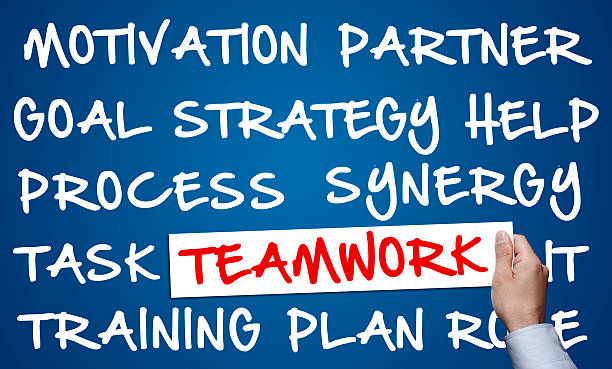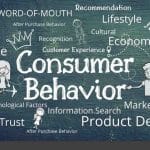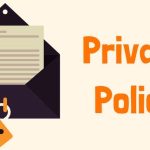Communication is the process of transmitting ideas, information, facts, opinions, and feeling, which is essential to any human interaction.
Every human desires to be heard and understood. Be it in a relationship, at a conference, at an event, at work, or even in business, communication is important. Your ability to communicate effectively determines your success as a lover, leader, worker, employee, business, or a career person.
Effective communication can make the difference between losing and landing your dream job, a big contract, or making your most significant sales.
Business communication is beyond regular communication, which is targeted at helping a business/organization achieve a fundamental goal through sharing information between stakeholders, employees, and the public. This includes creating, disseminating, and comprehending messages between different groups of people through written, verbal, virtual, or visual modes.
Business communication involves discussions on the actions that need to be taken, a status report on activities that have been taken, challenges faced and plausible solutions, SWOT analysis, and others. Communication in business goes beyond the potential problem and credible solutions; it also captures the internal and external communication that occurs in the business.
Table of Contents
Why is Effective Communication Important for Business?
Effective communication in business is crucial, and it comes with a ton of benefits.
- Effective communication helps you clearly communicate your goals, ideas, or message.
- It ensures that your messages are clearly understood.
- Effective communication helps to eliminate assumptions and misinterpretations.
- Effective communication fosters a good working relationship among business associates and colleagues, promoting teamwork and collaboration.
- It improves morale and efficiency, thereby increasing employee turnover and management’s satisfaction.
- Effective business communication increase productivity and steadier workflow.
- Effective communication enables strong decision-making, faster problem-solving, and goal achievement.
- Effective communication in business enhances the professional image of the employee and the business.
- Effective communication help create a good and positive reputation for the business to people outside the organization.
- Effective communication in business increases the business’ chances of success.
Are you an entrepreneur or do you love entrepreneur-related articles? Then, you are just in the right place. Simply subscribe to our newsletter.
7 Ways to Develop Effective Communication Skills
Effective business communication skills are essential skills any business professional must have.
Utilizing this essential skill to communicate with people around you increases your chances of being understood and taken seriously.
It also makes it easier for you and your team to work together more effectively on projects while solving problems faster and reaching your goals quicker.
Here are some tips on how to develop effective communication in business.
-
Good research skills
For you to have effective communication in business, you need to have good research skills. You need to get your facts, information, surveys, etc., correct, and you need good research skills.
Research skills help garner all the information and facts you need for effective business communication. A business can only be successful if the right information makes it to the right people at the right time.
-
Good writing skills

good-writing-skills
Another communication skill you’d need to have effective communication in business is good writing skills.
Writing skill is necessary in order for you to be able to put the information, facts, and surveys you gathered together.
Writing correctly, concisely, and cohesively makes your business communication easier and more effective.
Read also: Improve Your Writing: 7 Little Things that Make a Huge Difference in Writing
-
Good listening skills

Speak less; listen more.
One major skill that aids effective communication in business but has received less emphasis is listening skills. Good listening skill is essential for effective communication in business.
You need to have the ability to listen intently and carefully, with rapt and undivided attention to your colleagues, business associates, employees, or audience, to achieve effective communication.
-
Great speaking skills

Shot of two designers talking together while working on a computer in a modern office
Another skill that is vital for effective business communication is speaking skills.
As a business person, employee, or career person, you must communicate clearly and boldly without stuttering or stammering.
You need to be able to communicate without misrepresenting or disrupting the message you intend to pass across to your audience.
-
Reading skill
The ability to read clearly and audibly is another skill you would need as an effective communicator.
When communicating with your business partners, workers, or the public, an occasion may arise for you to read.
You need to read clearly, confidently, and audibly so that your audience may understand and not misinterpret what you are trying to convey to them.
-
Business strategy skills
Strategy skills are still needed for effective business communication.
You should be able to strategize on how to proffer solutions to business problems and how to present issues to business partners to ensure collaboration toward the success of the business.
People prefer to work with someone who knows what he/she wants to do and how to go about it.
-
Interpersonal skills

interpersonal skills
Another skill necessary to promote effective business communication.
You must be able to communicate and relate with colleagues, business associates, and team members.
You should be able to relate with everyone and carry them along.
Read also: 10 Essential Interpersonal Skills for Career Development
8 Ways to Develop an Effective Communication Strategy
-
Have a clear and well-prepared message
For you to have effective communication in business, your message must be clear and properly prepared.
It must follow the Gricean Maxims of quality, quantity, relation, and manner and must have the five c’s of effective communication.
It must be clear, concise, correct, courteous, and considerate.
Clear: your message should be communicated in a clear manner devoid of ambiguity to avoid confusion, misunderstanding, and misinterpretation. It must be clearly stated and communicated in an easy-to-read, easy-to-understand manner.
Avoid language that is difficult to understand or can be interpreted in many ways so that your reader or listener does not have to struggle or presume the message you are trying to convey.
Concise: your message must be straight to the point, following the Gricean maxims of quantity, quality, and relation. It must provide factual, informative, relevant, and the right amount of information, not too much or too little.
Avoid beating around the bush and giving irrelevant information or information that is false or not fact-checked.
Correct: Ensure that your message is correct, truthful, and factual. Do not pass across a message that is false or full of speculations. It destroys effective communication in business. Get your facts right, stick to the message, and avoid personal prejudices and digressions.
Cohesive: your message must be presented in an orderly manner. Your message should not be jumbled up or untidy.
Ensure you arrange your message step by step so that your audience can walk through your message without getting lost or having to go through it again.
Courteous: The tone of your message must reflect that of respect and kindness. It must not display any form of arrogance, aggressiveness, or rudeness in it.
Communicate your message in a respectful, humble, and polite manner. Offer your message in a persuasive form. This helps your audience stay perceptive and open-minded to benefit from you.
-
Adapt the message to your target audience
Another thing you should do to promote effective communication in business is to adapt your message to suit your audience.
Your style and language of communication with your team or professionals you work with should not be the same as the style and language you would use to address people from outside your organization.
Technical terms may be used while addressing people of the same field; however, while addressing people of different backgrounds, such terms should be properly broken down or replaced with simpler words that can be easily understood.
-
Prepare your message delivery
Message delivery is another thing to consider when ensuring effective communication in business.
Would you be using the intuitive method of carefully planned and researched speech, spoken conversationally, reading from the manuscript, or opting for the memorized form of delivery?
Would you be engaging visuals, PowerPoint, or printed text? Whichever you decide to go for, you need proper preparation in order to have effective communication.
You might also want to take a moment to prepare yourself mentally.
-
Communicate your message accurately and effectively
When communicating your message to your audience, ensure you pass your message across confidently and fluently. Ensure your words are clearly and adequately seasoned and vocalized.
Avoid yelling or raising your voice when you speak. Speak boldly with proper English and correct grammar while making eye contact with your audience.
Be assertive, authentic, enthusiastic, and engaging when you talk. Start and end your conversation on a positive note with all enthusiasm.
People are more receptive to energetic and engaging speakers. Smiling and showing your confidence are top strategies for better communication.
Let your speech be without distortion, stutters, redundancy, unnecessary digression, and interference.
Ensure your non-verbal communication – gestures, body language- align with the message you intend to convey.
-
Engage and encourage feedback

Hand choosing green tick paper cut, feedback rating and positive customer review.
One of the most effective and efficient ways of having effective communication in business is to ask for feedback.
Feedbacks are very vital in ensuring effective communication in business. The reaction you get from your audience shows if the message you are trying to pass across has been properly understood or misinterpreted.
Feedback ensures that:
-the message has been received and not lost by the intended recipient
-the message has been correctly understood and interpreted by the recipient
-the message has achieved its purpose
Be ready to re-educate, reiterate, receive criticisms and answer questions genuinely.
Read also: Best Ways to Get Customers’ Reviews & Feedback
-
Listen actively
Another way of improving your business communication is by actively listening to your audience.
You need to listen intently to your audience to be sure your intended message has been received.
Listening involves more than just hearing what someone says.
It involves listening to their speech, the tone of their voices, emotions, and thoughts. Don’t get carried away with other things you intend to do or say.
Give the speaker your undivided attention. If possible, paraphrase and repeat what the individual said to be sure you properly got and understood the person.
Do not interrupt when others are talking; allow them to finish their speech.
If you must say something, make a mental or quick written note of your point and speak when the person finishes.
-
Correct misconceptions and eliminate assumptions carefully
After listening to feedback carefully, ensure you correct assumptions and misconceptions.
Assumptions and misconceptions that are not corrected may lead to a loss of meaning, rendering communication in business ineffective.
-
Build Rapport with people

Build Rapport with people
Building rapport with people is another strategy to ensure effective business communication. It is like putting the last nail in the coffin. Be open to people.
Make yourself accessible and approachable. People tend to do business with others that they like.
To develop this type of relationship with a business associate, you have to work on making a connection with the person.
Endeavour to communicate freely with your audience during and after delivering your message. It helps to assure you that effective communication has been achieved.
Conclusion
Developing effective communication in business is not an instant skill. It comes with experience. It takes time, effort and practice to achieve effective communication in business.
Ensure you constantly and consistently work at achieving effective communication and before you know it, you would have become better at it.
Did you learn something new? Would you like to take a chance on your business with collaboration? Sponsor your business with us today to reach a wider audience. Also, join our Whatsapp community for firsthand updates on entrepreneurial webinars and workshops.
About the Author
Dada Kehinde is a content writer, editor, transcriptionist, teacher, and entrepreneur. She is passionate about educating and helping people to be a better version of themselves.
She is a graduate of the English language and holds a Master’s degree in the same field. She enjoys reading, watching movies, and designing.
About Author
- Op-Ed are articles published by guest authors. We no longer accept guest posts. However, we are still open to adding long-term content contributors to our team of insightful writers. To write for us, please check out inisght.ng/guest-post.
Latest entries
 Business InsightsMarch 27, 2024Effective Strategies for Managing Cash Flow in a Nigerian Business
Business InsightsMarch 27, 2024Effective Strategies for Managing Cash Flow in a Nigerian Business

 Business InsightsFebruary 12, 2024Privacy Policy for Business Websites: All You Need to Know
Business InsightsFebruary 12, 2024Privacy Policy for Business Websites: All You Need to Know

